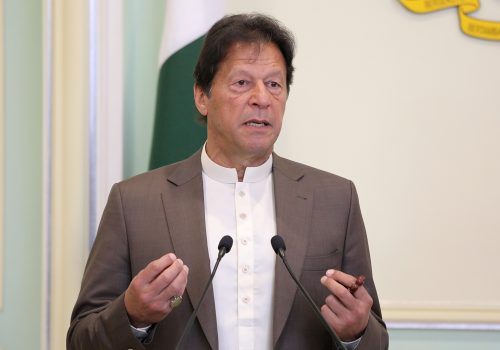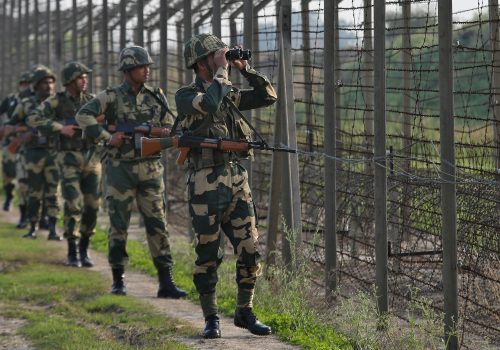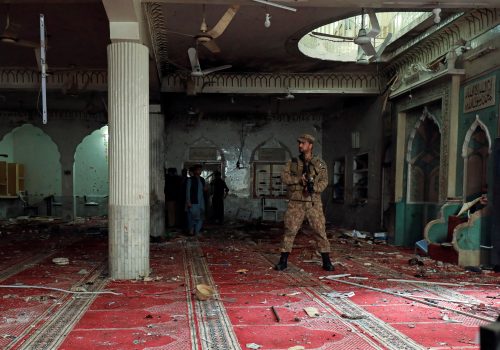Over the past few weeks, Pakistan has experienced increasing political and economic uncertainty, including a populist cut in petroleum prices, rising tempo in terror attacks, and the planned ouster of Prime Minister Imran Khan in a parliamentary vote of no-confidence. The motion for the vote was moved in parliament about one month ago, with opposing parties assembled under the Pakistan Democratic Movement arguing that Khan had lost his parliamentary majority. This was followed by a swift response by the prime minister in amplifying populist rhetoric, with aim of maintaining eligibility as a leader for the people and pointing to opposition and western powers as orchestrating his downfall.
Between alliances breaking and Pakistan Tehreek-e-Insaf (PTI) dissidents withdrawing support for Prime Minister Khan and his party, the chances of him remaining prime minister until recently appeared slim, and many thought that the PTI would fall short of the 172 votes required to stay in power.
On April 3, 2022, parliament convened to vote, but Khan miraculously survived after the deputy speaker of parliament dismissed the vote of no-confidence, using Khan’s claims of a foreign plot as his rationale. Khan quickly moved to dissolve parliament and called for fresh elections. Meanwhile, opposition parties have approached the Supreme Court, claiming that the deputy speaker’s decision was unconstitutional.
In light of these events, the Atlantic Council’s Pakistan Initiative (as part of the South Asia Center) holds a discussion on Thursday, April 7 at 10:30AM US ET / 7:30PM PKT about the implications of these developments and what they means for the future of Pakistan.
Featuring
Shuja Nawaz
Distinguished Fellow
South Asia Center, Atlantic Council
Safiya Ghori-Ahmad
Non-Resident Senior Fellow
South Asia Center, Atlantic Council
Ammar Khan
Non-Resident Senior Fellow
South Asia Center, Atlantic Council
Moderated by
Uzair Younus
Director, Pakistan Initiative
South Asia Center, Atlantic Council
Related content

The South Asia Center is the hub for the Atlantic Council’s analysis of the political, social, geographical, and cultural diversity of the region. At the intersection of South Asia and its geopolitics, SAC cultivates dialogue to shape policy and forge ties between the region and the global community.



Follow the conversation on Twitter with @AtlanticCouncil and @ACSouthAsia using #PakistaniPolitics